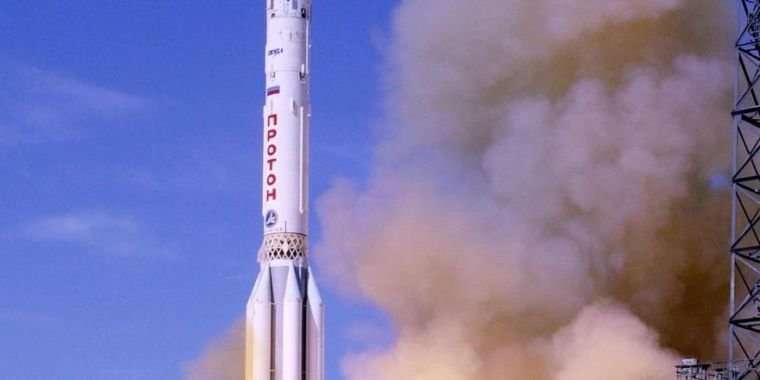As recently as 2013, Russia controlled about half of the global commercial launch industry with its fleet of rockets, including the Proton boosters. But technical problems with the Proton, as well as competition from SpaceX and other players, has substantially eroded the Russian share. This year, it may only have about 10 percent of the commercial satellite launch market, compared to as much as 50 percent for SpaceX.
In the past, Russian space officials have talked tough about competing with SpaceX in providing low-cost, reliable service to low-Earth and geostationary orbit. For example, the Russian rocket corporation, Energia, has fast-tracked development of a new medium-class launch vehicle that it is calling Soyuz-5 to challenge SpaceX.
On Tuesday, however, Russia's chief spaceflight official, Deputy Prime Minister Dmitry Rogozin, made a remarkable comment about that country's competition with SpaceX.
"The share of launch vehicles is as small as 4 percent of the overall market of space services," Rogozin said in an interview with a Russian television station. "The 4 percent stake isn’t worth the effort to try to elbow Musk and China aside. Payloads manufacturing is where good money can be made."
According to an independent analysis, the global launch market is worth about $5.5 billion annually. Losing its half-share of this market, therefore, has probably cost the Russians about $2 billion, which is a significant fraction of its non-military aerospace budget.
Rogozin is correct that satellite manufacturing is a considerably larger industry, worth about $14 billion a year. But like launch, this is also a competitive industry, and Russia has historically not had a dominant position in the satellite manufacturing and services industry like it has had in launch. It was the Soviet Union that first launched a satellite, Sputnik, and then a human, Yuri Gagarin, into space, after all.
What seems most remarkable about Rogozin's comment is that, for the first time publicly, the world's most storied launch provider appears to be ceding the commercial launch market to other providers—most notably a rocket company that didn't exist until 2002, and flew its first orbital rocket less than a decade ago.

PR0MeTHiUMX on April 18th, 2018 at 19:49 UTC »
Pretty sure the Chinese goverment has also stated it cant compete with spacex currently.
Phoenixed on April 18th, 2018 at 18:42 UTC »
Wasn't there a story where before SpaceX existed, Elon wanted to buy old rockets from Russians and they laughed him off?
Balance- on April 18th, 2018 at 16:29 UTC »
Russia's chief spaceflight official, Deputy Prime Minister Dmitry Rogozin:
It's a small share, but as long as you can make a profit you can let others pay for your rocket development. Like how current SpaceX customers pay (partly) for the BFR development.